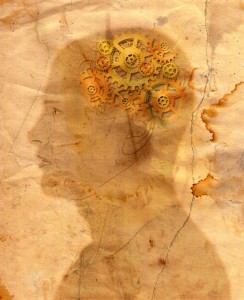 On the principle of starting with the most-available, easiest-to-access, demonstrably-effective tool, we usually advise even nonbelievers to try the Step fellowships. If they don’t work, there are other tools. However, the Steps may benefit from a little “re-engineering” to increase the nonbeliever’s chances of success. Here’s the next “Re-Engineered Recovery Tool,” the Eighth Step:
On the principle of starting with the most-available, easiest-to-access, demonstrably-effective tool, we usually advise even nonbelievers to try the Step fellowships. If they don’t work, there are other tools. However, the Steps may benefit from a little “re-engineering” to increase the nonbeliever’s chances of success. Here’s the next “Re-Engineered Recovery Tool,” the Eighth Step:
Step Eight: “Made a list of all persons we had harmed, and became willing to make amends to them all.”
If we’ve made it this far, we can start to deal with the minefields of our past. In Step Four we identified some of those self-defeating beliefs and attitudes like resentments, the need to always be right, etc. In Step Seven we acknowledged our struggle with them and assumed humility to ask for help.
It’s very likely that in the process of doing that inventory, we discovered an unpleasant truth: We have, intentionally or not, brought great distress and even harm to people we care about. And there is no way to go back and undo it. Nearly all of us face this issue at some point.
The damage we do when drinking or using is an inevitable companion to the distorted thinking of the addicted brain. But every recovering addict or alcoholic we’ve met feels bad about it. “Feeling bad,” though, can be problematic. We certainly shouldn’t feel good about the damage we’ve done, but wallowing in useless remorse is a bad place to get stuck.
Step Eight is the first part of the remedy: A damage assessment, and establishing our willingness to make amends (we’ll discuss the nature of “amends” in the next part of this series.) The “willingness” here is like the willingness we strive for with the Sixth Step: By consciously envisioning ourselves as someone making amends, we become ready to take the action of doing so.
What we’re aiming for is a state where we don’t feel as though making amends is a duty or obligation, but an opportunity—a chance to right some old wrongs. It may still make us anxious, but the chance is worth taking.
Working the Eighth Step: It may take some time to work this step. Start your list, writing down the people you harmed during your addiction, starting with the most obvious. Describe the situation and the nature of the harm they suffered. At this point, many of us feel guilty and defensive, but it will pass—it’s natural to feel this way. It may be a powerful feeling though, so you may need to take a break, and come back later, or tomorrow. Take a few days, even a week— we’re more likely to remember and add to the list as we go along and our memory is jogged.
Coming Soon: Do-It-Yourself Repairs
Recovery Without God -More from this series:
- Recovery Without God
- Taking Charge by Having Faith
- Atheology for Recovery
- The Church of the Exalted Chemical
- Coordinates on the Recovery Map
- Finding a Skeptical Starting Point
- Re-Engineering Recovery Tools
- Nonbelievers Moral Inventory
- Taking the Fifth
- The Readiness is All
- Humility Ain't for Wimps
- The Damage Assessment
- Do-It-Yourself Repairs
- Good Practice Over Bad Habit
- Balancing Act









